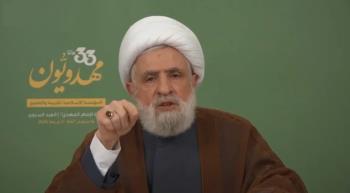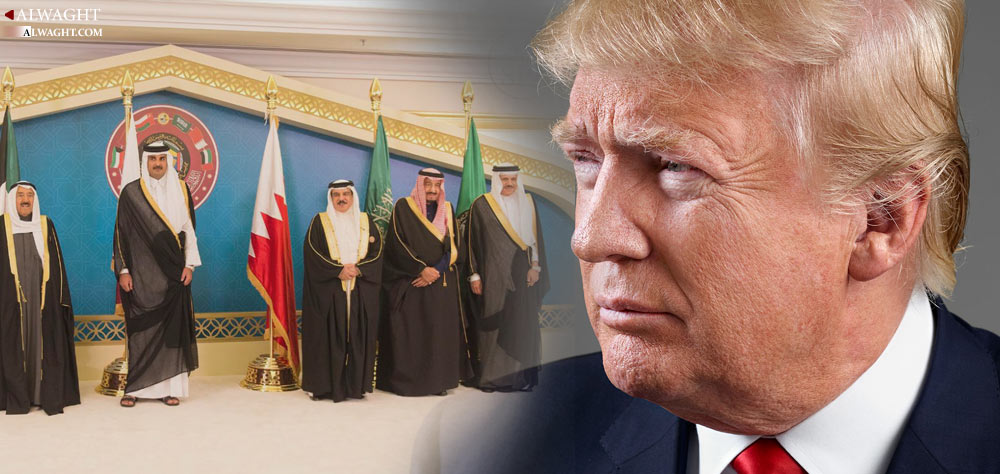Alwaght- The new US President Donald Trump has started his presidency at a time when the US relations with its Arab allies in the Persian Gulf region are undergoing their most critical times ever. These Arab states have become worried as Washington showed a change in its behavior since its invasion of Iraq. Uncertainty of actions in the Syrian crisis, negotiating and reaching a nuclear deal with Iran, and offering only a wavering support for Saudi and Emirati-led Arab coalition’s war against Yemen have raised the hackles of these Arab countries. These concerns, in turn, pushed them to gradually think that the US is no longer a trustable ally, and when the need arises, it cannot lead and react firmly to support them. Most importantly, a remarkable increase in domestic production of energy of the US in past five years has markedly reduced the American interests in the Persian Gulf. These worries are tied to the longstanding tensions coming out of conflict of the US and Arab views of the human rights, religion, and the governance system.
On the other side, it is true that Washington and the Persian Gulf Arab states have an abundance of common security interests, but they are sometimes at odds when it comes to approaching some aspects of regional security. While the US and Europe are majorly focusing on ISIS terrorist group’s threat, Saudi Arabia and its Arab neighbors are putting premium on security interests and a vast array of threats that are as equal as ISIS threat for them. These states' obsessions include supports for opponents of the President Bashar al-Assad of Syria, the Iraqi crisis and growing fears about Iraqi government’s closeness to Iran, threats by Yemen’s Ansarullah movement, and also threats by the extremists of Al-Qaeda in the Arabian Peninsula (AQAP). The Persian Gulf Arab countries, additionally, see the growing Iran’s missile power and this country’s increasing influence in Iraq, Syria, and Lebanon as unbearable. They at the same time look at Washington while it fails to deal firmly with Tehran and Moscow.
The anxiety of the Persian Gulf sheikhdoms even doubled after Donald J. Trump was elected as president of the US. The new American leader during his election campaign questioned a lot of his country’s foreign policy principles that made ground for US strategic partnership with these Arab states.
Moreover, easy and fast approval of Justice Against Sponsors of Terrorism Act (JASTA) by the US lawmakers even added to such Arab worries. The bill potentially built ground for the families of victims of 9/11 attacks to sue Saudi Arab for the kingdom’s complicity in the terror action. JASTA triggered the Saudi fury, sending it to pour out a series of threats, majorly financial, against the US.
At the same time, the US congressmen and many media outlets, and also the American public opinion are seeing the kingdom is in total failure to steer clear of civilian casualties and damage to Yemen’s infrastructures while pressing ahead with bombing campaign against the neighboring country. Actually, the Saudi air raids against the civilians potentially put the US accomplice to the kingdom’s “crimes against humanity” as Washington provides Riyadh with bombs and logistical services. The Saudi Arabian management of its anti-Yemeni air campaign has given rise to many questions about the damages to the Yemeni civilians and the way it wants to end the war.
Nonetheless, the tensions between the US and its Arab allies in the Persian Gulf region are yet to touch the critical levels, but certainly they have been worst since the September 11, 2001 attacks in the US. This discord has generated woes for Washington and its Arab allies, especially the US relations with Saudi Arabia and the UAE that make up the core of the US Arab allies in the Persian Gulf region.
In such conditions, a top priority for the President Trump is to sort out the US relations with the Arabs of the Persian Gulf, though the two sides face many challenges ahead of their course to boost ties. The conflicting approaches to the Syrian crisis and the terrorist groups active in the crisis-hit country, Washington’s unwillingness to intervene in Yemen’s war, and the US' leaning toward reviewing troubled relations with Iran are part of reasons why the two sides have ahead a road with a lot of highs and lows to continue their strategic partnership in a set of different fields.



























